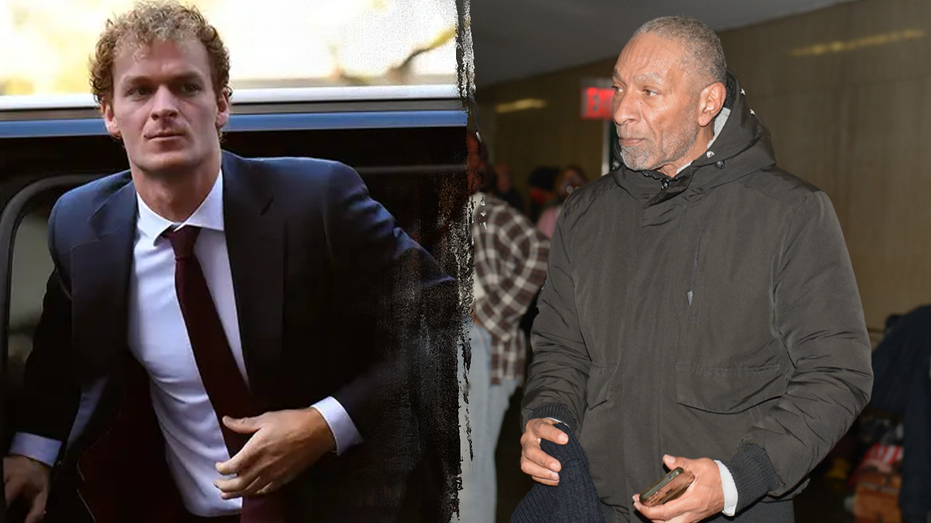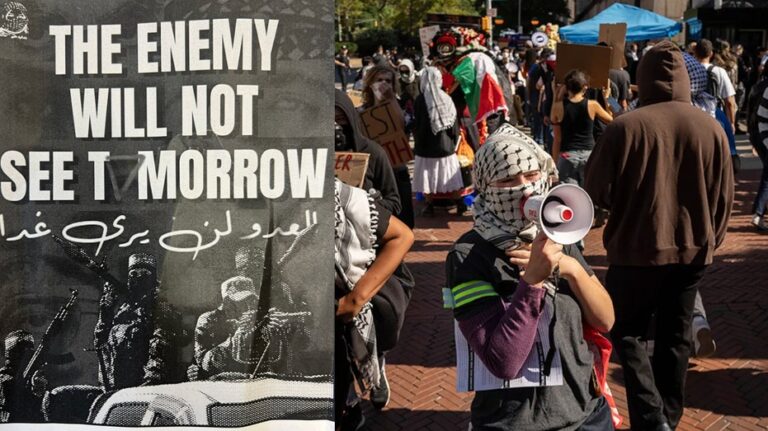
The father of a homeless New York City man who died after a Marine veteran put him in a chokehold to stop an outburst that included death threats against subway passengers is suing.
Jordan Neely, 30, died after Daniel Penny, a 26-year-old architecture student, grabbed him from behind in a headlock and wrestled him to the ground.
Jurors were still deliberating Penny’s fate in a manslaughter trial Wednesday when Neely’s father, Andre Zachary, revealed the lawsuit. Neely’s mother, Christine Neely, died when he was a child.
DANIEL PENNY TRIAL: KEY EVIDENCE JURORS ASKED TO SEE AGAIN DURING DELIBERATIONS
A copy of the complaint provided by Donte Mills, Zachary’s attorney, alleged Penny negligently assaulted, battered and seriously injured Neely, causing his death.
One of Penny’s attorneys said Thursday the legal team had not yet been served with paperwork in the civil case.
“The timing is unfortunate as Danny is awaiting a verdict from the jury where the potential consequences are far greater than any civil suit could threaten,” said Steven Raiser. “We will not be distracted by this attempt to attack Danny while he is under such tremendous stress.”
Read the civil complaint:
Penny faces up to 15 years in prison if convicted of the most serious charge, manslaughter. Jurors spent much of the week deliberating his fate, asking to see video evidence again and asking for the judge to clarify a number of legal terms, including the justification defense and the definitions of recklessness, required to prove manslaughter, and negligence, required to prove the lesser charge of criminally negligent homicide.
MANHATTAN DA’S DOWNPLAYING OF DANIEL PENNY’S POTENTIAL PUNISHMENT ‘IMPROPER AND MISLEADING’: DEFENSE
Penny remained at the scene and explained the incident to detectives, describing Neely as a “crackhead” but expressing concern about his threats, erratic behavior and a recent string of violent subway crimes.
“He was talking gibberish … but these guys are pushing people in front of trains and stuff,” he told detectives. There were more than 20 subway shoves in the year before Penny’s encounter with Neely.
Penny did not testify at his trial, so his interrogation is the only firsthand commentary shown to the jury in court.
Lara Yeretsian, a California defense attorney, said Neely’s father may get more from a lawsuit than the criminal case.
“The family may have a better shot in civil court,” she told Fox News Digital. “We’re not dealing with reasonable doubt anymore.”
The standard of guilt in a civil case is much lower than a criminal case. Prosecutors have to convince jurors of criminal charges beyond “reasonable doubt.” In a civil case, the plaintiff’s attorneys must prove their case based on a preponderance of evidence, more likely true than not.
Jurors ended their third day of deliberations around 5 p.m. Thursday without reaching a verdict.
They return to court Friday at 9:45 a.m.
The Associated Press contributed to this report.
The father of a homeless New York City man who died after a Marine veteran put him in a chokehold to stop an outburst that included death threats against subway passengers is suing.
Jordan Neely, 30, died after Daniel Penny, a 26-year-old architecture student, grabbed him from behind in a headlock and wrestled him to the ground.
Jurors were still deliberating Penny’s fate in a manslaughter trial Wednesday when Neely’s father, Andre Zachary, revealed the lawsuit. Neely’s mother, Christine Neely, died when he was a child.
DANIEL PENNY TRIAL: KEY EVIDENCE JURORS ASKED TO SEE AGAIN DURING DELIBERATIONS
A copy of the complaint provided by Donte Mills, Zachary’s attorney, alleged Penny negligently assaulted, battered and seriously injured Neely, causing his death.
One of Penny’s attorneys said Thursday the legal team had not yet been served with paperwork in the civil case.
“The timing is unfortunate as Danny is awaiting a verdict from the jury where the potential consequences are far greater than any civil suit could threaten,” said Steven Raiser. “We will not be distracted by this attempt to attack Danny while he is under such tremendous stress.”
Read the civil complaint:
Penny faces up to 15 years in prison if convicted of the most serious charge, manslaughter. Jurors spent much of the week deliberating his fate, asking to see video evidence again and asking for the judge to clarify a number of legal terms, including the justification defense and the definitions of recklessness, required to prove manslaughter, and negligence, required to prove the lesser charge of criminally negligent homicide.
MANHATTAN DA’S DOWNPLAYING OF DANIEL PENNY’S POTENTIAL PUNISHMENT ‘IMPROPER AND MISLEADING’: DEFENSE
Penny remained at the scene and explained the incident to detectives, describing Neely as a “crackhead” but expressing concern about his threats, erratic behavior and a recent string of violent subway crimes.
“He was talking gibberish … but these guys are pushing people in front of trains and stuff,” he told detectives. There were more than 20 subway shoves in the year before Penny’s encounter with Neely.
Penny did not testify at his trial, so his interrogation is the only firsthand commentary shown to the jury in court.
Lara Yeretsian, a California defense attorney, said Neely’s father may get more from a lawsuit than the criminal case.
“The family may have a better shot in civil court,” she told Fox News Digital. “We’re not dealing with reasonable doubt anymore.”
The standard of guilt in a civil case is much lower than a criminal case. Prosecutors have to convince jurors of criminal charges beyond “reasonable doubt.” In a civil case, the plaintiff’s attorneys must prove their case based on a preponderance of evidence, more likely true than not.
Jurors ended their third day of deliberations around 5 p.m. Thursday without reaching a verdict.
They return to court Friday at 9:45 a.m.
The Associated Press contributed to this report.


